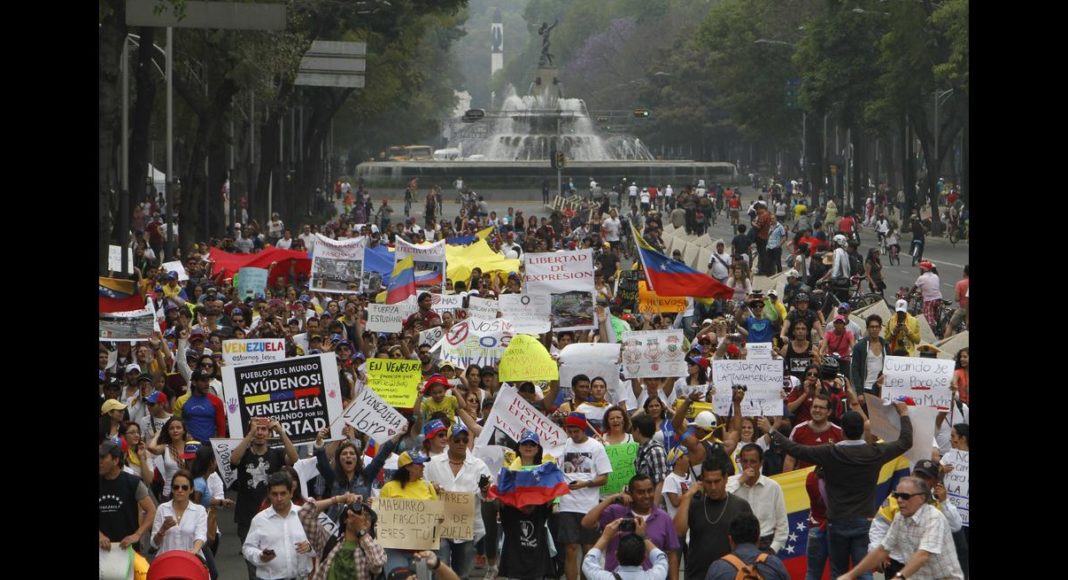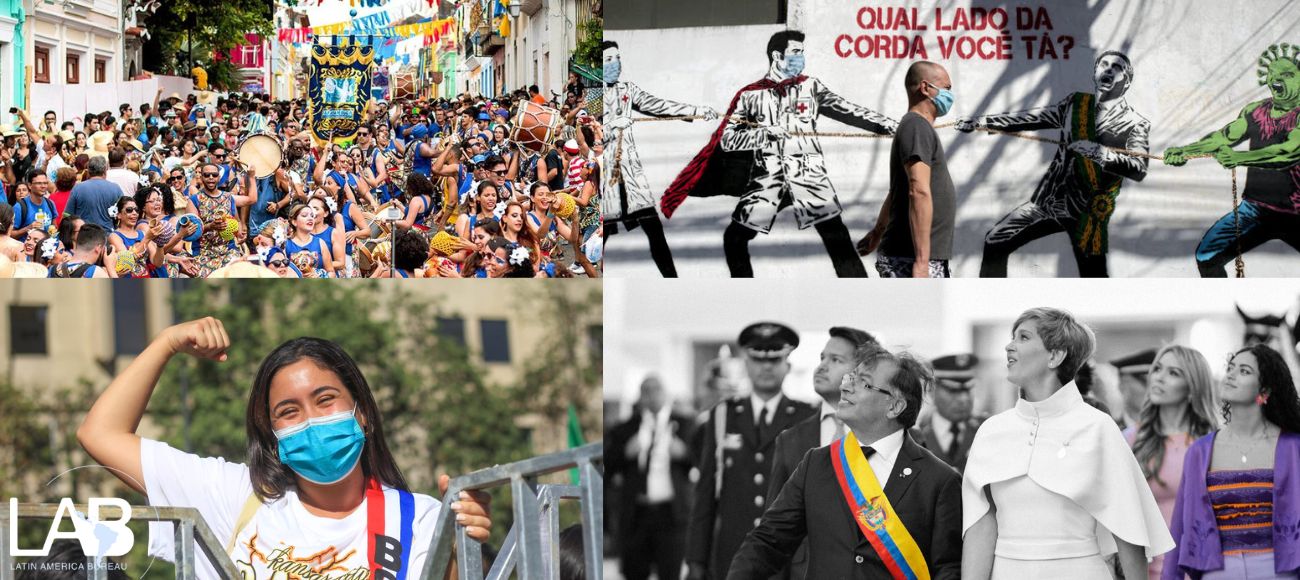
Venezuela – a view from the grassroots part 1
Images of swollen protests flooding the streets of Venezuelan cities have spread globally during the past fortnight. These have been accompanied by news of military deployment and the violence of armed civil groups. On one side, we hear of President Maduro’s vociferous denunciations of a coup in the making. On the other, we hear of accusations of grave abuses of power that serve as new evidence of the government’s dictatorial slant.
Anyone attempting to comprehend the situation we are currently living in Venezuela will be aware of the fact that the transmission of events is thoroughly caught up with the propaganda of each disputing faction, making it difficult to understand what is going on. Some have said that this situation is not new, recalling the coup attempt 12 years ago that ushered in this period of acute political polarisation. Yet the contextual distance that separates the current wave of unrest from events of 2002 is such that in many aspects the circumstances have almost become antithetical.
The current crisis was preceded by an electoral victory for chavismo. Relying on a campaign against widespread speculation in consumer goods (particularly within the electro-domestic sector), the government was victorious in the December local elections, winning 71.64% of the seats and obtaining approximately 49% of the total votes, some nine percentage points above the Mesa de la Unidad Democrática (The Democratic Unity Roundtable — MUD), the business-led opposition coalition. MUD had campaigned with the intent of turning the elections into a plebiscite on Maduro’s government, a tactic that failed. Even so, the chavista victory was overshadowed by the exacerbation of the economic crisis. Last year closed with the highest rate of inflation and shortages since the current government took power in 1999.
The government’s promise that so-called ‘fair prices’ (‘precios justos’) would be consolidated through the imposition of controls on small traders was soon belied by reality. The policies of the Venezuelan Central Bank (BCV) increased the money supply by 70% in 2013, while inflation reached 56.2%. Only during November and December, in the midst of electoral campaigning, was inflation brought down to 7%. According to the BCV, the average shortage index – which measures the amount of goods out of stock at any given time – was 13.3% for the 2003-2013 period. However, by January 2014 shortages were registered at 28% (26.2% of these being food shortages). Between 2012 and 2013, overvoicing on imports (a way of sending capital out of the country) exceeded US$20 billion, and Maduro was forced to admit publicly that the government had failed to make the necessary checks when granting foreign currency to importing traders. International reserves fell by US$ 801.7 million in 2013, with 2014 opening with total reserves at US$ 21.736 billion.
Faced with this situation, the government made use of the political capital gained in its electoral victory to open negotiations with the MUD leadership. The aim was to obtain support for the economic adjustment measures that the government planned to implement imminently. In a typical instance of chavista oscillation, ten days after the elections and the government’s victory against ‘fascism’, Maduro cordially met with most of the elected MUD mayors and governors in the Presidential Palace of Miraflores, and set about discussing the economic measures to be taken. Among these was a call to increase the highly subsidised fuel prices. In a press release, the MUD later announced its support for the increase, stating that it ‘places its technical and political resources at the executive’s disposition in order to reach the highest degree of consensus on a matter of crucial importance for the lives of Venezuelans’.
Henrique Capriles, the leader of MUD, met subsequently with the Minister of the Interior, Miguel Rodríguez Torres, to discuss national security policy. This ended the deadlock in place since the Maduro’s election as President in April, which MUD had yet to recognise.
On January 22, the government moved to improve its balance of payments situation by introducing a special 79% devaluation of the currency to be used for importing non-essential goods, as well as for purchasing foreign currency to be used to travel and buy electronic goods. This represented the first stage of economic adjustment. Despite the support received from MUD for the increase in fuel prices, the government delayed the implementation of this measure with fears of its potential social consequences. In previous years, Chávez’s charismatic leadership and personal prestige had enabled the government to implement unpopular measures with much less resistance. However, Maduro lacks such appeal, and his negotiations with MUD, as well as the devaluation, were met with harsh criticism from leftist activists in the chavista base. Public accusations of a governmental turn towards the right began to emerge from conflicts within the governing Partido Socialista Unido de Venezuela (United Socialist Party of Venezuela — PSUV).
Meanwhile, confrontations between factions of the MUD coalition increased as a result of their electoral loss. As Capriles led the largest division into negotiations with the government, Leopoldo López of smaller MUD branch Voluntad Popular (Popular Will — VP) turned towards the streets. With the support of National Assembly deputy María Corina Machado, López launched a hash tag campaign on February 2 in a gathering in Caracas’ Plaza Brión. Its slogan was ‘the exit is on the street’ (#lasalidaestáenlacalle), which was effectively calling for Maduro to resign. Incidentally, it is interesting to note that most mentions of López in the U.S. diplomatic cables published by Wikileaks refer to his fallouts with other leaders of the established opposition, widely known for its links with the U.S. government. Also present at the February 2 gathering were the ex-Maoist party Bandera Roja (Red Flag), the metropolitan mayor of Caracas, Antonio Ledezma, and the president of the Federation of University Centres from the Central University of Venezuela (UCV), Juan Requesens.
There they announced plans for a mass demonstration to be held on February 12 in Caracas. Simultaneously, in Nueva Esparta state, xenophobic protests were held against the Cuban baseball team participating in the Caribbean Series tournament that took place contemporaneously. As part of the campaign initiated by VP, the first student protests began on February 4 in San Cristóbal and Mérida, both cities located in the Venezuelan Andes. Portraying itself as the intransigent and radical sector of MUD, VP and its allies attempted to steer the direction of the coalition through capitalising on the disastrous economic and social situation of the country while accumulating followers for a right-wing exit to the crisis.
* Simón Rodríguez Porras is a militant in the Socialism and Freedom Party (PSL).
This article was originally published in Spanish on February 23, 2014 at http://laclase.info. The English version was edited by Rebecca Jarman.

